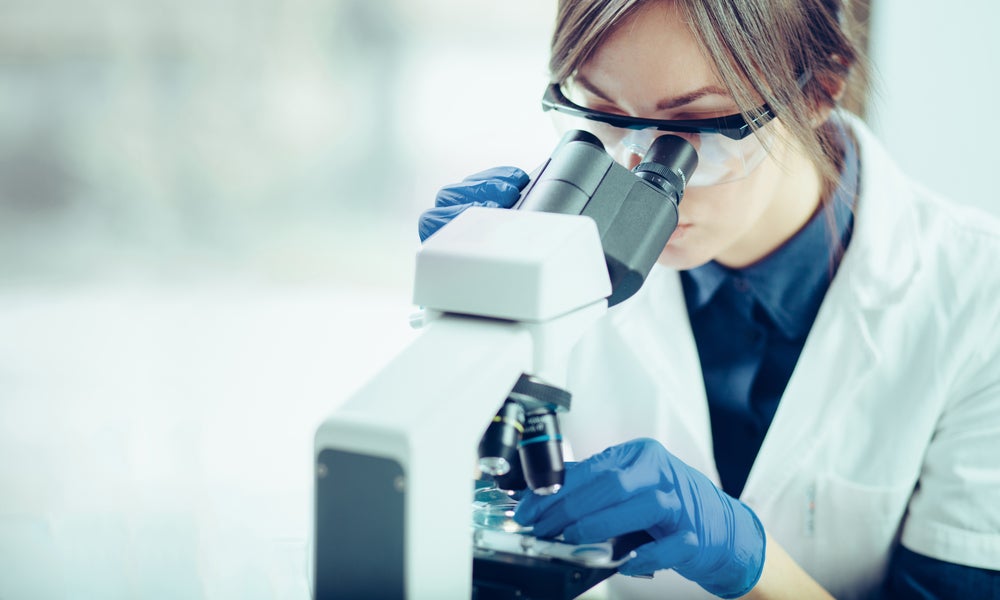
Elemental Machines, the smart lab pioneer, provides software and sensors that leverage data science to optimise R&D processes. The company’s success follows decades of learnings – and a few surprises. CEO and founder Sridhar Iyengar walks us through Elemental’s story.
What is Elemental’s origin story?
Elemental is my third start-up, and the connective tissue is that it’s everything I learned at start-up number two applied to all the headaches and problems I had at start-up number one.
My first company, started 20 years ago, made glucometers. We were doing this all through contract manufacturing partners out in the Far East. This was pre-cloud, pre-AWS, pre-Bluetooth, so having eyes and ears in the factory halfway around the world was not easy. So we started out in a very manual manner, we put sensors everywhere and measured everything, as temperature and light and humidity had a very large impact – it’s just the nature of the chemistry.
Then about 10 years ago I started another company in the consumer health and wellness space making fitness trackers. We had almost a million people using our fitness trackers around the world, and it occurred to me that we had inadvertently created a globally distributed sensor network. That’s when I had the idea that if I had this kind of tech stack when I was back in the medical device industry, life would have been a lot easier.
That was the inspiration for Elemental. We started with biotech and pharma because it’s a world that I knew and a world where there’s an increasing pressure to accelerate product development, bring things to market faster at lower cost.
What do you offer customers?
We free lab operations professionals from many of the urgent needs and routine tasks that fill their days while empowering them with the data they need to shape strategy. That requires two things: taking routine data collection off of their shoulders and turning reactive operations into proactive ones.
If you’re working in biopharma, you’re going to be working with chemicals and biologics, and the most common variables that affect that are going to be temperature and humidity and also light levels. So we made a temperature, light, humidity, air pressure sensor tucked into one little two-inch by two-inch box. That’s our Element A, and it’s all battery operated and broadcast by Bluetooth.
The other main IoT device is the Element T, and that is for extreme temperatures of liquid nitrogen all the way up to high-temperature ovens. We also have a couple of IoT devices that connect up to machines and third-party sensors. Once the data is in the cloud, we have a robust dashboard, and we also have an audit-friendly reporting module.
Today, we’ve got over 200-250 customers ranging from small biotech, material science start-ups all the way to Big Pharma. More and more, our synthetic biology customers are asking for data on everything, much more than traditional pharma companies. We have several food science customers and food manufacturing customers as well. Last year we expanded into clinical labs and then also quality control labs, so the lab space is exploding.
It even surprised me how much need there is for the kind of products that we’re building. And COVID has opened everyone’s eyes to a couple of things. It’s really highlighted that there’s a lot of inefficiencies in scientific research but there doesn’t need to be.
What makes your offering unique?
We exist to empower LabOps pros. From day one we’ve had a data science focus, so that we are developing algorithms for event detection or anomaly detection, for prediction, for classification and so on.
I’ve learned the critical importance of the out-of-the-box experience and just building products in a way that would appeal to the consumer as well. We have put a lot of effort into making extraordinarily easy to use and easy to install and deploy products. We have a very consumer design-oriented approach to our products.
What does the future hold?
We’ve spent the last three plus years building this platform to connect machines, instruments and even your facilities to the cloud. We’re really excited about building on the analytical side of things, so doing things like anomaly detection, prediction, and really customising that.
We can now start servicing more of the laboratory operations side, so not just asset management, not just data collection but we can now look at giving predictive information and helping people with their workflows.
What values underpin Elemental’s approach?
We have four company values: thoughtfulness, commitment, drive, creativity. Those are the main four company value pillars that we like to embrace both internally and how we want to be perceived by our customers and the industry at large.
We’re thoughtful, we like to be perceived as being nice to each other internally and just being nice people to work with, and I think we’ve gotten that accolade multiple times from our customers. Commitment: when we say we’ll do something, we do it. Drive is we have very ambitious goals.
That leads onto our fourth value, which is creativity. When you’re a small start-up and you take on these kinds of ambitious goals, the only way to achieve them is to figure out how to do more with less and then how to be creative. So, can creativity play in a data-driven space? Without a doubt.


